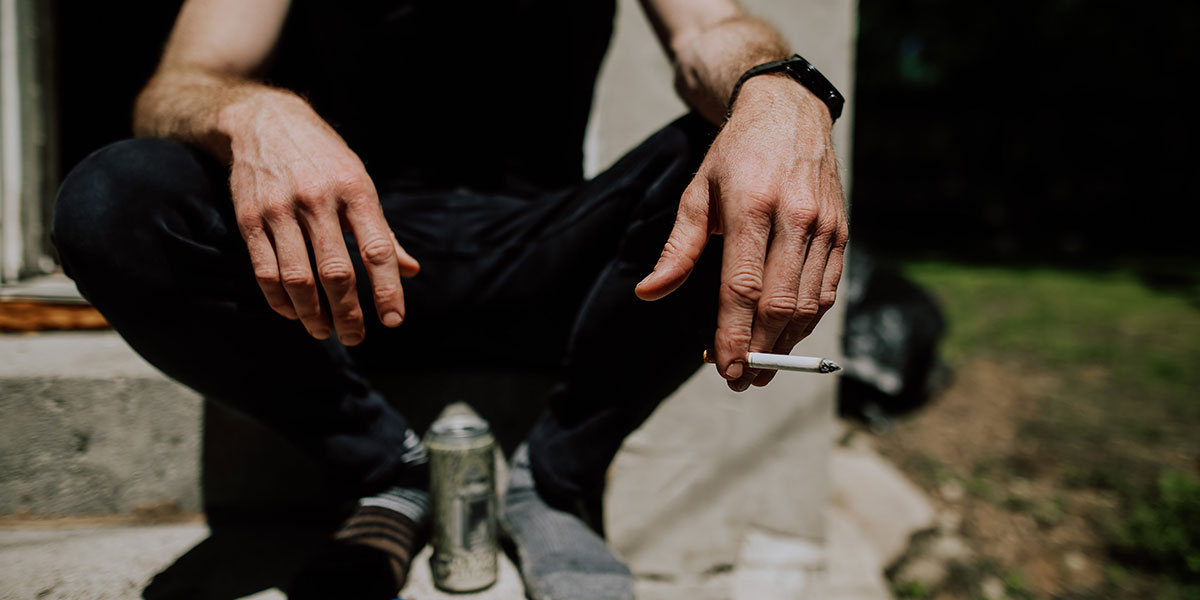What Is Aftercare?
Aftercare in the context of substance abuse treatment refers to the ongoing support and interventions provided to individuals after completing formal addiction treatment programs. It is a strategic plan tailored to address the challenges and vulnerabilities that arise during the transition from structured rehabilitation to independent, daily life. Aftercare ensures a transition from intensive treatment, maintaining a continuum of care to prevent relapse.

Individualized Support
After completing formal addiction treatment, individuals embark on a unique journey in recovery, here it should be noted that not always what works for one may work for another, aftercare substance abuse treatment crafts customized coping mechanisms. Whether it’s stress management techniques, mindfulness practices, or specific behavioral interventions, the focus is on developing a toolkit that resonates with the individual. Even with environmental factors, social situations, or emotional stressors, the individualized approach aims to equip individuals with strategies to navigate these challenges without resorting to substance use.
Addiction Treatment Aftercare
Aftercare should be integrated into the overall addiction treatment process, and therefore, it is necessary to start with an assessment of an individual’s needs and continue as a collaborative effort between treatment professionals and the person in recovery.
After rehabilitation, individuals face the challenges of reintegration into society, which is why addiction aftercare extends support beyond the controlled environment of a rehab center, addressing the complexities of the real world of everyday life. It is worth noting at this point that effective aftercare involves regular monitoring of each step and progress.
Long-Term Sobriety: aftercare substance abuse treatment is focused on maintaining long-term sobriety, providing tools and support systems to help individuals navigate the ongoing journey of recovery avoiding relapses.
Preventing Regression: this is a critical aspect because it is easy to fall back into old patterns of behavior. By addressing triggers, stressors, and individual vulnerabilities, aftercare acts as a safeguard against the recurrence of substance abuse.
Addressing Co-occurring Factors: in this regard, it is necessary to address co-occurring factors, such as mental health problems or anxiety, as these are major contributors to substance abuse.
Hobbies for Recovering Alcoholics
Recovering from alcohol addiction involves engaging in productive and positive activities for maintaining sobriety during the challenging phase of life after addiction. Here are direct and practical suggestions for hobbies that can support a healthy, alcohol-free lifestyle:

- Physical Fitness
- Mindfulness Practices
- Artistic Expression
- Outdoor Exploration
- Learning a Musical Instrument
- Cooking and Nutrition
- Volunteer Work
- Reading and Literature
- Develop a habit of reading
- Photography
- Sports and Group Activities
- Travel Exploration
- DIY Projects
Explore our collection of insightful addiction articles to gain valuable information and guidance on your journey toward lasting wellness.
- What is an addiction, and its causes?
- 3 Lessons To Learn From Addiction
- Why You Should Consider Outpatient Addiction Treatment
Aftercare Plan for Substance Abuse
Developing a substance abuse aftercare plan is a pragmatic process that involves direct and assertive communication with people who have addiction issues and consideration of several elements that can generate stress triggers.
- Begin by consulting the case manager in treatment. At Spark to Recovery, we recommend initiating an open conversation to review treatment outcomes and identify potential challenges post-treatment. Then, establish strategies for overcoming these challenges, ensuring the transition from the treatment environment.
- For those opting for the AA route, engage with a mentor within the AA community. Discuss how to integrate AA meetings into the aftercare plan and establish a supportive network within the fellowship.
- Incorporate essential elements into the aftercare plan, including continued therapy or counseling sessions. Prioritize a healthy lifestyle by integrating physical exercise, proper nutrition, and adequate sleep. Set realistic vocational and educational goals to rebuild a stable and purposeful life after addiction. Additionally, incorporate life skills development into the aftercare plan, such as financial management and effective time management, to enhance overall stability and balance.
Books For Recovering Addicts
In this section, we would like to make a recommendation of some books that we consider as a complement to the aftercare addiction plan.
- “The Big Book” by Alcoholics Anonymous:
This foundational text offers firsthand accounts of recovery experiences within the AA community and provides practical steps for achieving and maintaining sobriety.
- “Clean: Overcoming Addiction and Ending America’s Greatest Tragedy” by David Sheff
Sheff’s book explores the science of addiction and delves into personal stories, shedding light on the impact of addiction on individuals and society. It offers a compelling perspective on recovery.
- “In the Realm of Hungry Ghosts: Close Encounters with Addiction” by Gabor Maté
Dr. Maté combines his medical expertise with personal narratives to explore the root causes of addiction. The book offers a compassionate understanding of the challenges faced by those in recovery.
- “The Recovering: Intoxication and Its Aftermath” by Leslie Jamison
Jamison blends her memoir and research to examine the relationship between addiction and creativity. This book provides a unique perspective on the complexities of recovery.
Jobs For Recovering Addicts
Re-entry into the job market is a crucial aspect of rebuilding life for people in recovery, and there are even those who, after a transformative process, decide to change careers and begin a new phase in their lives. The following are straightforward and practical ideas about possible jobs for recovering addicts:
- Counseling and Peer Support Roles
Substance Abuse Counselor
Peer Support Specialist
- Healthcare Professions
Registered Nurse
Medical Assistant
- Trades and Skilled Labor
Carpenter
Plumber
Electrician
- Information Technology (IT) and Coding
IT Support Specialist
Web Developer
Software Engineer
- Manufacturing and Production:
Production Worker
Assembly Line Worker
Machinist
- Transportation and Logistics
Truck Driver
Warehouse Manager
Logistics Coordinator
- Art and Creative Industries:
Graphic Designer
Photographer
Writer
8. Entrepreneurship and Small Business
Small Business Owner
Entrepreneur
Freelancer
Resources For Recovering Addicts
- Support Groups: Participation in support groups is a cornerstone of recovery. 12-Step Programs, such as Alcoholics Anonymous (AA) and Narcotics Anonymous (NA), provide a structured environment where individuals can share their experiences, receive guidance, and establish a network of support. Additionally, SMART Recovery offers an alternative approach based on scientific principles and cognitive-behavioral techniques, empowering individuals to take control of their recovery journey.
- Online Resources: The digital landscape provides valuable resources for individuals in recovery. Websites like End Addiction offer information, tools, and helpline services. Online support groups, particularly relevant in times of physical isolation, provide a platform for connection and shared experiences, reinforcing the importance of community in recovery.
- Medication-Assisted Treatment (MAT): MAT involves the use of prescribed medications, such as methadone or buprenorphine, to manage withdrawal symptoms and cravings. Under the supervision of healthcare professionals, MAT can be an effective component of a comprehensive recovery plan. It aims to reduce the risk of relapse and provide stability during the early stages of recovery.
- Family and Relationship Support: Addiction often strains relationships. Family therapy is an essential component of recovery, providing a space for open communication and healing within the family unit.
In conclusion, the outlined resources for recovering addicts encompass a diverse range of support systems, addressing physical, emotional, and practical aspects of the recovery journey. Recognizing the unique needs of individuals, these tools offer guidance, stability, and a sense of community crucial for sustained sobriety. By combining these resources, individuals in recovery can navigate the challenges of rebuilding their lives.
Ready to take the next step toward lasting recovery? Call Us today, (855) 805-4508 and book your specialist appointment.



